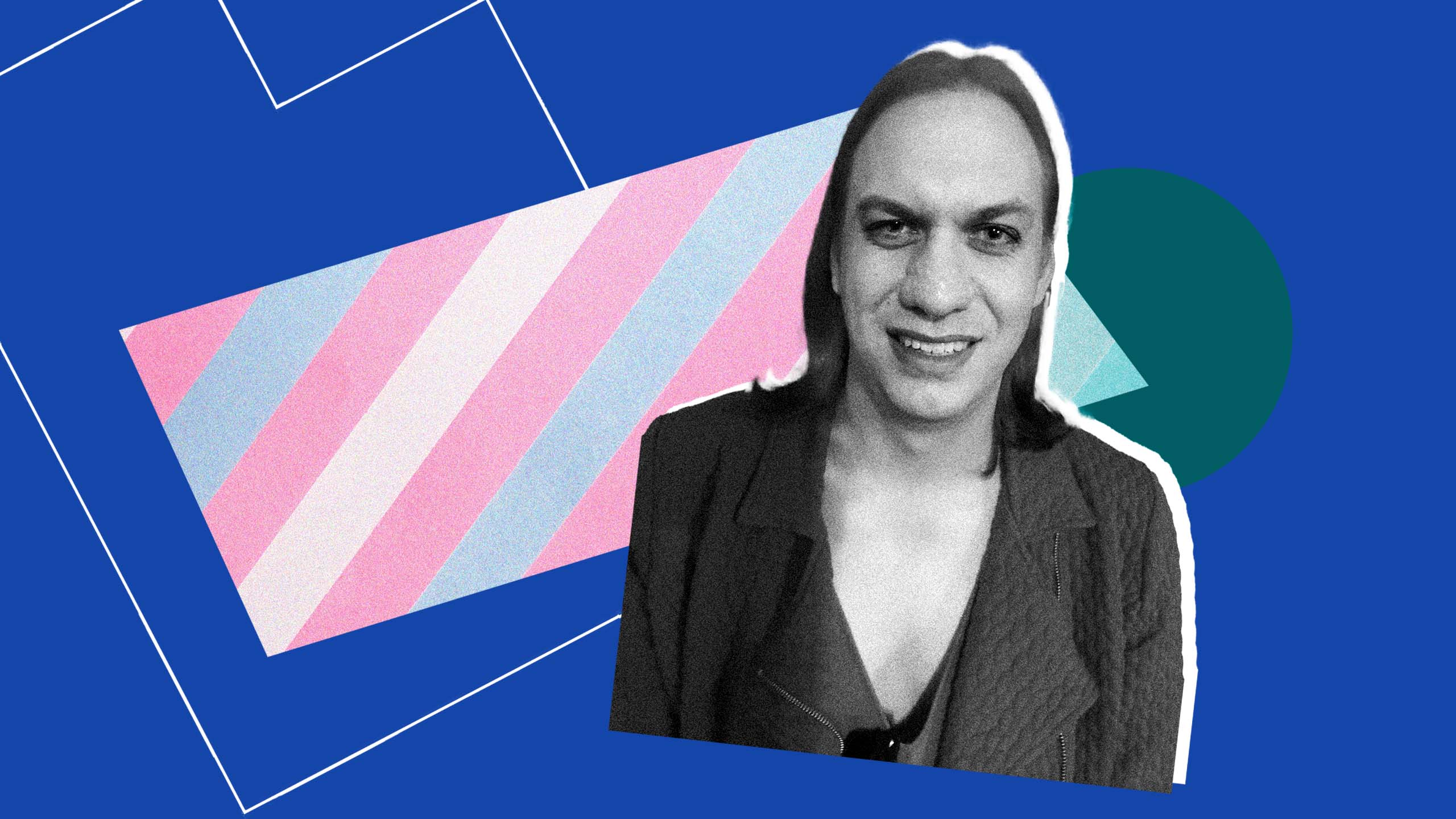The past few months have been euphoric for Alysha Valerie Scarlett, a trans woman living in Manti, in rural Utah, who came out in October.
“It’s been a literal awakening,” Scarlett says. “I feel like I’m finally coming of age at 33.”
Scarlett describes the past couple months since coming out as brimming with joy, in which she’s exploring her femininity and feels newly alive to herself—months that recently culminated with her being, she believes, the first trans woman in her county to have her gender and new name affirmed.
Still, coming out hasn’t been completely easy for her, and she’s faced unique challenges as a trans woman who grew up Mormon and lives in a town with a population of just over 3,000 people.
“It’s a cliché that a lot of trans people say, but the hardest person to come out to is yourself,” Scarlett says. “And I found that was true for myself. I think a lot of people come out sooner…. But with the indoctrination I had to recover from, I think it makes sense that I’m at the point I’m at now. This happens for a lot of ex-Mormons, who take a long time to recover.”
Born in Salt Lake City, Scarlett grew up in the the Church of Jesus Christ of Latter-day Saints (known as the LDS church)—an environment she describes as a conservative cult that prevented her from completely accepting herself as trans. After earning a degree in journalism and going on an LDS mission, she managed to leave the church in 2016. Still, complete self acceptance eluded her, even as years went by and she experimented with her presenting more traditionally feminine.
Scarlett felt more freedom experimenting with her gender during the pandemic, when she worked from home and could wear feminine clothing every day. It was this past October that she demanded that she be open with herself.
“You just need to be open. Just open yourself up to being a woman, open yourself up to being a lesbian,” she remembers telling herself. She changed her name on OkCupid and updated her profile to say she is a trans woman and lesbian. The next morning, she says, she was listening to “Old Time” by Enya on repeat, and she heard the lyric “who knows where the road goes.” The lyrics resonated with her—she felt both like she was changing her life forever, and like there would be fallout because of it.
She felt like she needed to calm down and take a beat. She took a two-day trip to Denver, Colorado, and spent time with friends. Around mid-October, she says, she came out to her parents and brother, who she says were not accepting of her transition at all. She says her family was completely “diametrically opposed” to her transitioning, an opposition that Scarlett said was as strong as it could be barring physical violence. She says that her father, whose home Aly sees her children in-person in, demanded that Scarlett “be a man” in order to see them.
“These past few months would have been 100 percent euphoric if not for my family’s reaction,” Scarlett says. “It’s like how when a rocket takes off, there’s some debris dragging it down, but it slowly falls off as the rocket goes into space.”
Despite the difficulty of her family situation, Scarlett says, coming out has brought a lot of happiness to her life; she describes it as a “metamorphosis.” She replaced her wardrobe with a new, more conventionally feminine one. She bought six purses at once from a thrift store, and, looking at maxi dresses and leggings and other clothing, says she wondered where all of this had been for her entire life.
She set about changing her name on everything she could and sought out gender-affirming care. Some institutions, she says, accommodated her when it came to her name change, but others wouldn’t. For example, she said, her credit union gave her a debit card with her new name, but one bank wouldn’t change anything until she changed her name legally. The process, she says, revealed an arbitrariness to policies that exclude trans people.
She encountered similar obstacles to gender-affirming healthcare—as well as othering remarks from practitioners that demonstrated how ill-equipped they were to provide trans care.
“This medical assistant and the healthcare provider she works with said ‘this is all new, this is all new,’ five times,” she says. “The first couple times I understood, but like. Yes, I know, let’s just do our best.”
That same healthcare provider, Scarlett says, acknowledged that there wasn’t a single doctor trained in trans healthcare in her county. The provider ended up submitting a referral to a practitioner two hours north of Salt Lake City, where Scarlett has travelled twice a week for the past three weeks. While discussing a matter related to medical transition over the phone, Scarlett says that the person calling her misgendered her and called her by her deadname—despite her pronouns at name being at the top of the healthcare company’s profile.
Scarlett often finds that she has to do her own research to get proper care. One doctor told her that all surgeries related to medical transition had a one-year waiting period. Scarlett’s own research, discussions with other doctors and what she learned at Genderevolution, an LGBTQ2S+ conference held by the Utah Pride Center, revealed this was not the case across the board.
“You really need to be on the cutting edge of research as a trans person,” Scarlett says.
She has not been dissuaded, and continues to work to medically and socially transition. This Wednesday, she got her gender and name affirmed at the Sanpete County Court—which her lawyer said may have been the first such affirmation in the county. Afterward, she went out to a celebratory dinner with her aunt, who has been supportive of her transition.
Scarlett’s now looking ahead to the future. Though she works in PR now, Scarlett wants to move to Los Angeles and be a filmmaker. She already has experience in the film industry, having been a screenwriter, production assistant, boom operator and more on multiple films. Notably, she worked the latter two jobs for Love Spell, a short film that earned 12 awards.
“Hollywood isn’t known for treating trans women well,” she says. “But that’s my goal. I’ve started applying for jobs—I’ve applied to 15 so far. I know that I need to apply to a lot more to get one, but hopefully that can happen. That would be wonderful.”


 Why you can trust Xtra
Why you can trust Xtra


